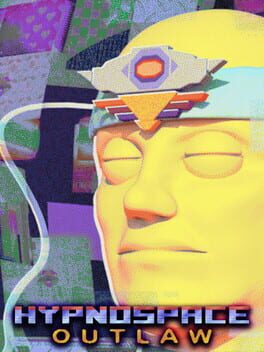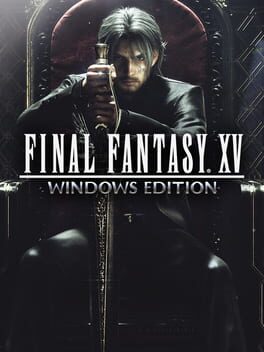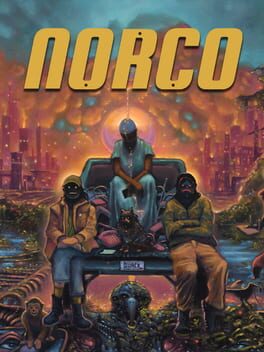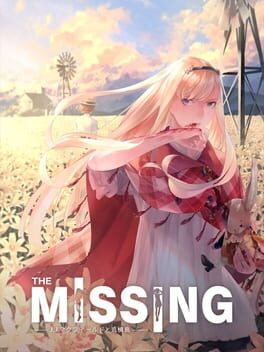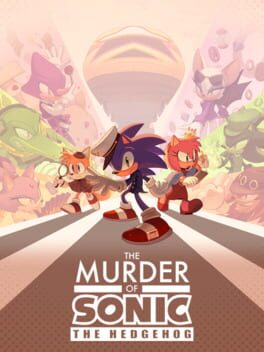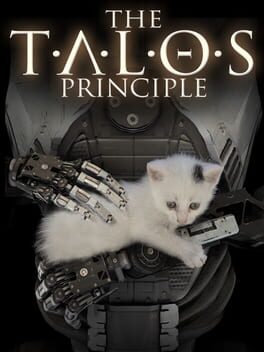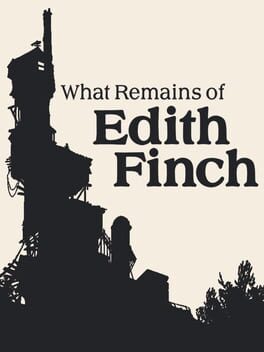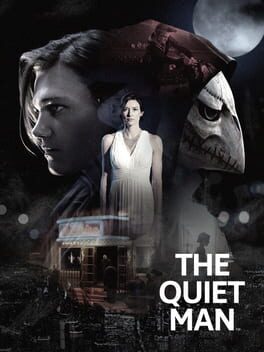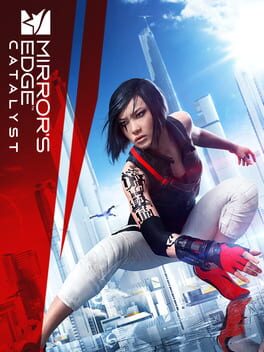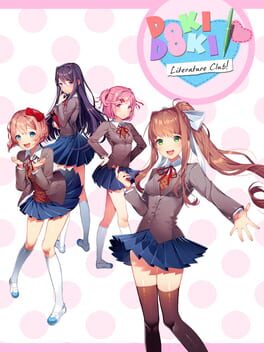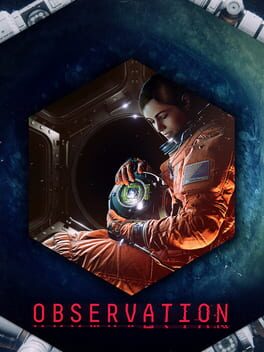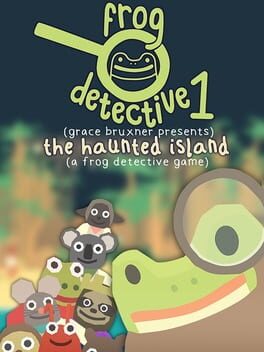VYZNDR
2019
Hypnospace Outlaw is a funny and pretty spot-on parody of late 90's internet and the communities who grew up on it.
A few of the puzzles are obtuse enough that it might help to have a walkthrough on-hand to help out (although admittedly, I had a pretty bad fever when I was playing so wasn't in the most analytical of mindsets), especially near the end of the game.
My main complaint about Hypnospace Outlaw, which applies to a lot of other faux-retro games, is that fonts in old PC user interfaces were much more readable than people seem to remember. Long paragraphs are a pain to read with such blocky fonts and for a game entirely about reading old websites, that can be an issue.
A few of the puzzles are obtuse enough that it might help to have a walkthrough on-hand to help out (although admittedly, I had a pretty bad fever when I was playing so wasn't in the most analytical of mindsets), especially near the end of the game.
My main complaint about Hypnospace Outlaw, which applies to a lot of other faux-retro games, is that fonts in old PC user interfaces were much more readable than people seem to remember. Long paragraphs are a pain to read with such blocky fonts and for a game entirely about reading old websites, that can be an issue.
Final Fantasy XV is the absolute epitome of a mixed bag. There are some great touches around an otherwise mediocre and unfocused game, to a point that it's very clear to the player this it suffered a long period of development hell.
The story is the skeleton of a standard JRPG - you are a stylish teenager who is destined to save the world from a generic evil. Unfortunately, there's very little else on top of that to really flesh it out. The vast majority of the plot happens in the 2nd half of the game and feels like a treadmill of events and characters that you don't really know or have any connection to. In fact, the 2nd half does away with the open world altogether and makes me wonder if it was developed by an entirely different team.
Through the game you visit a number of locations, but even just a few months after finishing the game I wasn't able to describe any of them in more detail than "the truck stop with a garage" or "a coastal town."
Every location is just a five-minute drive away, making the whole world feel very small. Normally I'd be okay with this, but the story takes an apocalyptic turn later on (because of course it does) and I can't tell if the entire world is under threat or just this tiny area that I'm limited to. That being said, the open world looks absolutely gorgeous and it's satisfying to just drive slowly to your next location to take in the scenery and maybe snap a few photos along the way.
Speaking of photos, that's probably the one feature that I can unreservedly praise. One of your travel buddies, Prompto, will take snaps throughout your adventure - always during the main story beats but often just in the middle of a random encounter or while exploring the world. At the end of each chapter, or when you give your party a rest at a campfire, you can look over all the photos taken during the last session and keep your favourites. It doesn't sound like much, but it is a surprisingly effective way of creating fond memories of your travels, be it a beautiful landscape or the very first time you fought a Morbol and had to run away. Somehow, I was getting nostalgic looking at photographs of an adventure that I wasn't even invested in while it was happening.
All this makes me sound like I hated the game, but I didn't - or at least I don't think I did. Final Fantasy XV is, admittedly, less than the sum of its parts - but there was just something about it that made me root for the game to be better than it was. I can't explain why I have fond feelings towards Final Fantasy XV, despite not having fond memories of it. There's some alternate universe out there where this game was completed smoothly and was able to fulfil the vision that it's going for.
If there's any game that deserves a "re-imagining" in five years' time, it's this.
The story is the skeleton of a standard JRPG - you are a stylish teenager who is destined to save the world from a generic evil. Unfortunately, there's very little else on top of that to really flesh it out. The vast majority of the plot happens in the 2nd half of the game and feels like a treadmill of events and characters that you don't really know or have any connection to. In fact, the 2nd half does away with the open world altogether and makes me wonder if it was developed by an entirely different team.
Through the game you visit a number of locations, but even just a few months after finishing the game I wasn't able to describe any of them in more detail than "the truck stop with a garage" or "a coastal town."
Every location is just a five-minute drive away, making the whole world feel very small. Normally I'd be okay with this, but the story takes an apocalyptic turn later on (because of course it does) and I can't tell if the entire world is under threat or just this tiny area that I'm limited to. That being said, the open world looks absolutely gorgeous and it's satisfying to just drive slowly to your next location to take in the scenery and maybe snap a few photos along the way.
Speaking of photos, that's probably the one feature that I can unreservedly praise. One of your travel buddies, Prompto, will take snaps throughout your adventure - always during the main story beats but often just in the middle of a random encounter or while exploring the world. At the end of each chapter, or when you give your party a rest at a campfire, you can look over all the photos taken during the last session and keep your favourites. It doesn't sound like much, but it is a surprisingly effective way of creating fond memories of your travels, be it a beautiful landscape or the very first time you fought a Morbol and had to run away. Somehow, I was getting nostalgic looking at photographs of an adventure that I wasn't even invested in while it was happening.
All this makes me sound like I hated the game, but I didn't - or at least I don't think I did. Final Fantasy XV is, admittedly, less than the sum of its parts - but there was just something about it that made me root for the game to be better than it was. I can't explain why I have fond feelings towards Final Fantasy XV, despite not having fond memories of it. There's some alternate universe out there where this game was completed smoothly and was able to fulfil the vision that it's going for.
If there's any game that deserves a "re-imagining" in five years' time, it's this.
2022
I just can't get my thoughts on Norco together in a coherent string of sentences, which is maybe fitting for a game whose writing has no interest in being coherent.
That's not to say that it's poorly written, but its flowery and poetic prose can be a dense struggle in a way that's a little offputting. I can't decide if I'm just not smart enough to "get it" or if the game is trying too hard to refine its audience to "the intellectual crowd". I was a big fan of Disco Elysium which isn't entirely different in style (albeit a little more playful), but perhaps the voice acting helped me take it all in.
Even by its release in 2022, it felt a little bit dated to me. One group is an obvious analogue to the far-right Proud Boys. As of the time of this review that group is unfortunately still around, but Norco may have made more of an impact if it had come a few years sooner or had gone all-in on the satire rather than having them feel like a comic relief set of goofballs. It just felt a bit surface-level and toothless. The game has a lot it wants to say about capitalism, environmentalism, disillusionment and so on, but none of it really ties together outside of vague vibes.
The way characters talk, referring to others as "edgelords" or talking about "watching hentai with the boys", feels so online in a way that is either painfully true or just kind of awkward. Although the attempts at humour should have been a way to break up the verbose writing style of the narrator, they generally fell flat.
There are a few minigames and combat sequences that feel out of place and surplus to requirements. They weren't engaging enough to be fun in their own right and felt like they were included because adventure games usually have that kind of thing in them.
Norco starts and ends strong enough, but it drags in the middle and had it been a few hours longer, I think I might have dropped off.
That's not to say that it's poorly written, but its flowery and poetic prose can be a dense struggle in a way that's a little offputting. I can't decide if I'm just not smart enough to "get it" or if the game is trying too hard to refine its audience to "the intellectual crowd". I was a big fan of Disco Elysium which isn't entirely different in style (albeit a little more playful), but perhaps the voice acting helped me take it all in.
Even by its release in 2022, it felt a little bit dated to me. One group is an obvious analogue to the far-right Proud Boys. As of the time of this review that group is unfortunately still around, but Norco may have made more of an impact if it had come a few years sooner or had gone all-in on the satire rather than having them feel like a comic relief set of goofballs. It just felt a bit surface-level and toothless. The game has a lot it wants to say about capitalism, environmentalism, disillusionment and so on, but none of it really ties together outside of vague vibes.
The way characters talk, referring to others as "edgelords" or talking about "watching hentai with the boys", feels so online in a way that is either painfully true or just kind of awkward. Although the attempts at humour should have been a way to break up the verbose writing style of the narrator, they generally fell flat.
There are a few minigames and combat sequences that feel out of place and surplus to requirements. They weren't engaging enough to be fun in their own right and felt like they were included because adventure games usually have that kind of thing in them.
Norco starts and ends strong enough, but it drags in the middle and had it been a few hours longer, I think I might have dropped off.
Let's get the negatives out of the way - it's a fairly standard puzzle platformer with controls that are a tiny bit sloppy and the voice acting ain't great, albeit it's bad in a way that reminds me of the charm of older Japanese games. That being said, there are scenes with distorted voices that are genuinely quite creepy.
Anyway, after Deadly Premonition, it's surprising that Swery has put together a fairly thoughtful and kind presentation of trans identity. It even starts with a text card reading "This game was made with the belief that nobody is wrong for being what they are."
Throughout the game, you receive text messages on your phone which fill in the story as you go along. Aside from the explicit mentions that shows up near the end, there are some good subtle examples of setting up the game's themes of visual identity and presentation- for example, being told by your mother that "you need to take care of your body, or else you'll ruin it", in a game about disposing of your old body and regenerating into a new one, or your friend being judged unfairly due to their appearance.
Of course, as a cis guy I might be missing out on some elements that could be problematic or completely misunderstanding trans-ness, but I was made aware of The Missing by trans gamers on Twitter commenting that it sticks the landing better than expected so I'm going to take their word that it's well put together in that regard.
Anyway, after Deadly Premonition, it's surprising that Swery has put together a fairly thoughtful and kind presentation of trans identity. It even starts with a text card reading "This game was made with the belief that nobody is wrong for being what they are."
Throughout the game, you receive text messages on your phone which fill in the story as you go along. Aside from the explicit mentions that shows up near the end, there are some good subtle examples of setting up the game's themes of visual identity and presentation- for example, being told by your mother that "you need to take care of your body, or else you'll ruin it", in a game about disposing of your old body and regenerating into a new one, or your friend being judged unfairly due to their appearance.
Of course, as a cis guy I might be missing out on some elements that could be problematic or completely misunderstanding trans-ness, but I was made aware of The Missing by trans gamers on Twitter commenting that it sticks the landing better than expected so I'm going to take their word that it's well put together in that regard.
2014
Depending on how much you've thought about what it really means to be human (or played/watched NieR: Automata, Blade Runner, etc.), the first half of The Talos Principle can seem a bit "A.I. Philosophy 101". Similarly, the early puzzles in the game are a tad simple and unengaging.
Thankfully, both the puzzles and the philosophical ponderings improve as you progress. That being said, I wouldn't have complained if the game had been a couple of hours shorter.
Thankfully, both the puzzles and the philosophical ponderings improve as you progress. That being said, I wouldn't have complained if the game had been a couple of hours shorter.
If I was being glib, I could call this a lesson in the importance of Health & Safety. In reality, it’s probably the best “walking sim” I’ve played to date, although that’s an admittedly small list.
The vignettes telling the story of various characters are all interesting and certainly memorable but feel a bit disconnected from each other. There is a throughline of misfortune but that’s about it and it is hard to really care about these people that we only spend a few minutes with each.
The ending is maybe a bit predictable which lessens the impact slightly, but it’s certainly handled very well and doesn’t feel cheap. It’s not a genre for everyone, but if you were a fan of Gone Home and others like it, What Remains of Edith Finch comes highly recommended.
The vignettes telling the story of various characters are all interesting and certainly memorable but feel a bit disconnected from each other. There is a throughline of misfortune but that’s about it and it is hard to really care about these people that we only spend a few minutes with each.
The ending is maybe a bit predictable which lessens the impact slightly, but it’s certainly handled very well and doesn’t feel cheap. It’s not a genre for everyone, but if you were a fan of Gone Home and others like it, What Remains of Edith Finch comes highly recommended.
2018
Legitimately some of the most fun - if maybe for the wrong reasons - I've had out of almost any game in the year I played it. It's easy to dunk on but it was short enough to not feel tiresome and honestly I would replay this again before even glancing at most overly long-and-bloated games.
The sheer audacity of this thing to even exist makes it worth checking out.
The sheer audacity of this thing to even exist makes it worth checking out.
Hellblade is a tricky one. It easily has some of the best production values of any game that came out in 2017, the visuals are a genuine achievement and the sound design is impressive and fits the tone of the game perfectly. Unfortunately, the gameplay along with some aspects of the storytelling just don’t hold up for me.
The opening hour of the game (before entering the door to Helheim) is a slog and I was very close to cutting my losses and moving on to something else. I’m glad I stuck with it, but the problems with the introduction never went away, they were just overshadowed by other aspects where the game shines. The puzzles feel “video-gamey” in a way that doesn't fit the tone the game aims for and combat is simplistic and uninvolved, making the supposed permadeath a non-threat. The focus of the game isn’t necessarily on either of these things, but you do a lot of them throughout the course of playing. The movement speed feels natural for the character but with the size of some of the areas, I was internally begging the game to just get on with it sometimes.
Hellblade is most notable for its representation of psychosis — specifically Senua hearing voices in her head and seeing shapes and patterns in the world. From what I am led to believe, the way some parts of this is portrayed in the game is fairly accurate and adds an extra layer of confusion to the bizarre land she is fighting her way through. It is an unusual and unique thing to experience and does seem to have a minor connection to the story, but I couldn’t shake the feeling that it was just treated as a flavouring on top of a more rote story about loss.
What’s more, her psychosis is presented as a superpower which feels a bit… not cool? I understand that the video game needs to happen and it’s a way to incorporate how Senua sees things differently and turn it into a gameplay mechanic, but having the character’s hallucinations be reduced to a way of magicking up bridges that aren’t there feels quite dismissive — especially after the game implies at the start that it will be taking her condition seriously.
The voices she hears are usually commenting on her anxieties in a way that feels — from my outside perspective at least — authentic. They are also occasionally used to warn you of off-screen attacks during combat which, although unrealistic, didn’t feel out of place or pull me out of Senua’s headspace. Incidentally, I strongly recommend playing with headphones as the whispering voices were, to me, vital to the experience.
We see occasional flashbacks of Senua’s relationship with her father and her lover, but we never get an idea of who her character is. It would have been more interesting to me to learn how her mental illness affects her during the more mundane moments of her life when she’s not on a quest to invade Hell.
Hellblade could have been a character action game set in a fantastically realised Norse mythology world with a simple story of loss and revenge, or it could have been a grounded and respectful examination of schizophrenia. Instead, it feels like these two ideas were forcefully mashed together with very mixed results.
The opening hour of the game (before entering the door to Helheim) is a slog and I was very close to cutting my losses and moving on to something else. I’m glad I stuck with it, but the problems with the introduction never went away, they were just overshadowed by other aspects where the game shines. The puzzles feel “video-gamey” in a way that doesn't fit the tone the game aims for and combat is simplistic and uninvolved, making the supposed permadeath a non-threat. The focus of the game isn’t necessarily on either of these things, but you do a lot of them throughout the course of playing. The movement speed feels natural for the character but with the size of some of the areas, I was internally begging the game to just get on with it sometimes.
Hellblade is most notable for its representation of psychosis — specifically Senua hearing voices in her head and seeing shapes and patterns in the world. From what I am led to believe, the way some parts of this is portrayed in the game is fairly accurate and adds an extra layer of confusion to the bizarre land she is fighting her way through. It is an unusual and unique thing to experience and does seem to have a minor connection to the story, but I couldn’t shake the feeling that it was just treated as a flavouring on top of a more rote story about loss.
What’s more, her psychosis is presented as a superpower which feels a bit… not cool? I understand that the video game needs to happen and it’s a way to incorporate how Senua sees things differently and turn it into a gameplay mechanic, but having the character’s hallucinations be reduced to a way of magicking up bridges that aren’t there feels quite dismissive — especially after the game implies at the start that it will be taking her condition seriously.
The voices she hears are usually commenting on her anxieties in a way that feels — from my outside perspective at least — authentic. They are also occasionally used to warn you of off-screen attacks during combat which, although unrealistic, didn’t feel out of place or pull me out of Senua’s headspace. Incidentally, I strongly recommend playing with headphones as the whispering voices were, to me, vital to the experience.
We see occasional flashbacks of Senua’s relationship with her father and her lover, but we never get an idea of who her character is. It would have been more interesting to me to learn how her mental illness affects her during the more mundane moments of her life when she’s not on a quest to invade Hell.
Hellblade could have been a character action game set in a fantastically realised Norse mythology world with a simple story of loss and revenge, or it could have been a grounded and respectful examination of schizophrenia. Instead, it feels like these two ideas were forcefully mashed together with very mixed results.
I have next to no experience with CRPGs so I went into Disco Elysium assuming that I'd maybe poke around at it for a couple of hours and then drop it. Instead, I rinsed it as dry as I could in a single playthrough for nearly 40 hours. The writing is amazing, not just "good for a video game" - so couple that with full voice acting throughout with the "Final Cut" patch and you've got a genuinely enthralling experience from start to finish.
It's one of those games that I need to rein myself in when recommending it because I feel like I'm overselling how good it is, I enjoyed it that much.
It's one of those games that I need to rein myself in when recommending it because I feel like I'm overselling how good it is, I enjoyed it that much.
2017
What can I say about NieR: Automata that hasn’t been said a million times already?
Don’t go into NieR expecting one of Platinum’s usual character action games, full of deep combat mechanics and challenging fights. This is very much Yoko Taro’s project, where philosophy and story come before gameplay. That’s not to say that the action is bad per se, just that it isn’t the main focus.
When it launched, many people dropped off early from NieR, whether it be due to the game being “too anime” or simply from not understanding that each ending (complete with credit roll) is no more than a chapter break presented in an unusual way that doesn’t pay off until you reach Ending [E], the actual ending to the game. This is a huge shame, as a lot of the themes presented during route [A] are fleshed out in great depth later on and some of the best moments are hidden inside side-quests which some players may outright avoid.
With so many games featuring androids feeling a bit “Cyberpunk 101” with regards to the question of whether artificial intelligence can be considered sentient life (I’m looking at you, David Cage’s Detroit), NieR: Automata jumps straight to “yes” and then examines the deeper questions beyond that. There are a few topics that NieR touches on briefly — such as the concept of gender when removed from human physiology, or the sense of self one might lack when their memories can simply be backed up and restored from a server, making “death” meaningless — that I would be excited to see Taro explore in more depth in the future.
It may not be the best game of 2017 in terms of pure gameplay but as a narrative piece, it feels like one of the few mainstream video games that holds up to scrutiny. At the very least, it’s one of the only games that gave me genuine goosebumps.
Don’t go into NieR expecting one of Platinum’s usual character action games, full of deep combat mechanics and challenging fights. This is very much Yoko Taro’s project, where philosophy and story come before gameplay. That’s not to say that the action is bad per se, just that it isn’t the main focus.
When it launched, many people dropped off early from NieR, whether it be due to the game being “too anime” or simply from not understanding that each ending (complete with credit roll) is no more than a chapter break presented in an unusual way that doesn’t pay off until you reach Ending [E], the actual ending to the game. This is a huge shame, as a lot of the themes presented during route [A] are fleshed out in great depth later on and some of the best moments are hidden inside side-quests which some players may outright avoid.
With so many games featuring androids feeling a bit “Cyberpunk 101” with regards to the question of whether artificial intelligence can be considered sentient life (I’m looking at you, David Cage’s Detroit), NieR: Automata jumps straight to “yes” and then examines the deeper questions beyond that. There are a few topics that NieR touches on briefly — such as the concept of gender when removed from human physiology, or the sense of self one might lack when their memories can simply be backed up and restored from a server, making “death” meaningless — that I would be excited to see Taro explore in more depth in the future.
It may not be the best game of 2017 in terms of pure gameplay but as a narrative piece, it feels like one of the few mainstream video games that holds up to scrutiny. At the very least, it’s one of the only games that gave me genuine goosebumps.
If you've played the original Mirror's Edge, you already know whether or not you're going to like this. Movement still feels just as fluid and satisfying as before, any drastic changes there would've been unwelcome. The key difference in Catalyst is its open world which, unfortunately, doesn't add much to the formula as the best levels are the hand-crafted one-offs which feel much more akin to the first game.
The open world doesn't necessarily flow great in some areas so you'll find yourself using fast travel more than you'd like in a game that's all about traversal. Thankfully, fast travel points are made available through well-designed puzzle tower levels, so they don't feel like a chore to unlock.
The open world doesn't necessarily flow great in some areas so you'll find yourself using fast travel more than you'd like in a game that's all about traversal. Thankfully, fast travel points are made available through well-designed puzzle tower levels, so they don't feel like a chore to unlock.
It’s hard to write about Doki Doki Literature Club without outright spoiling what makes it so interesting.
I’m not particularly well versed with visual novels , but DDLC creates a story that only really works when told as a dating sim game and I’ll always give bonus points to a game that justifies why its story is being told through a video game as opposed to a book or film. Well-worn tropes are intentionally used here for good reason and are very effective at luring you in to its world. Some of its visual effects may be a little heavy-handed for me, but that's just my personal taste.
All I can really say is to try it out — even if you’re not a fan of the genre — and make it to the first “ending” when the turn happens. It should only take about an hour, if even that, to make it there. You’ll soon see why DDLC has the character I consider to be the villain in gaming for 2017.
I’m not particularly well versed with visual novels , but DDLC creates a story that only really works when told as a dating sim game and I’ll always give bonus points to a game that justifies why its story is being told through a video game as opposed to a book or film. Well-worn tropes are intentionally used here for good reason and are very effective at luring you in to its world. Some of its visual effects may be a little heavy-handed for me, but that's just my personal taste.
All I can really say is to try it out — even if you’re not a fan of the genre — and make it to the first “ending” when the turn happens. It should only take about an hour, if even that, to make it there. You’ll soon see why DDLC has the character I consider to be the villain in gaming for 2017.
2019
If you were a fan of No Code's previous work, 2017's Stories Untold (and you should be, it's incredible!), you'll enjoy this. The atmosphere is tense throughout without relying on too many predictable horror tropes or jumpscares and the story leaves just enough unexplained - including the ending - to let your mind fill in the blanks. Good endings are few and far between (including Stories Untold) and in this case they did a great job of not trying to wrap everything up in a neat, understandable package.
The camera movement can be frustratingly slow at times and certain locations are easy to get lost in, but these are minor quibbles.
For the full experience, play Observation in the dark with a good set of headphones, as the visual and audio design are outstanding.
The camera movement can be frustratingly slow at times and certain locations are easy to get lost in, but these are minor quibbles.
For the full experience, play Observation in the dark with a good set of headphones, as the visual and audio design are outstanding.
The Haunted Island is a cute, weird little thing with a similar vibe to Donut County. It follows the standard adventure game formula of "collect this item, give it to this person who will give you the next item" but at only 30–40 minutes, it ends before you have a chance to get bored of it.
It's short, but a very fun and charming little world to hang out in for a while and I'd definitely be keen to take on more cases as the Frog Detective.
It's short, but a very fun and charming little world to hang out in for a while and I'd definitely be keen to take on more cases as the Frog Detective.
